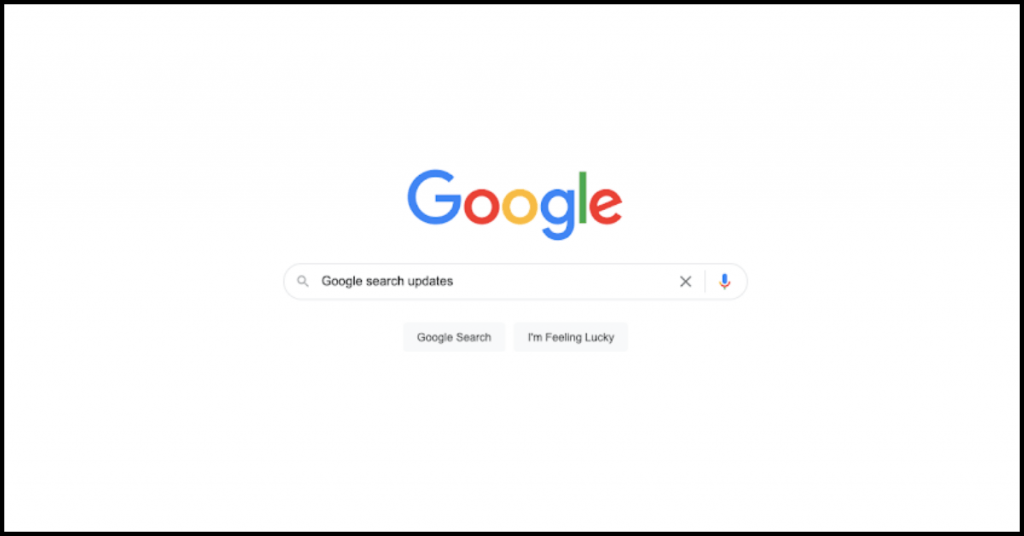Another day, another Google algorithm change. Or at least it seems that way. The search giant launched yet another update that has left the SEO world quaking. This time, they are reinventing their process behind generating title tags. Now, Google altering title tags is not new, but they’re shifting focus to the content of the actual page, rather than the query users type into the search engine.

What’s the name of the SEO game?
On-page optimizations are a cornerstone of SEO. Well-optimized title tags, H1s and meta descriptions are our jam (along with the Mamma Mia soundtrack, personally). A title tag is an HTML element of a webpage that offers Google users insight into what they can expect when they land on your website. They play a critical role in organic search ranking factors. With Google now grabbing H1s or on-page content and bringing it into the title tag, we have to assess how to adapt our skillset and continue to regrow the magical forest of SEO. It is still imperative that we create quality title tags, as Google stated “HTML title tags are still by far the most likely used, more than 80% of the time” according to Search Engine Land. But what about when they don’t use the HTML title tag? What happens then?
This sparked plenty of conversation among the SEO community about how this update will affect rankings and click-through rate. Google confirmed that these title changes will not affect rankings, and that it only affects the displayed title. This comes as a small relief to SEOs everywhere, but still begs the question of how it may affect clicks and the SEO process. Some are finding their title tag changes are confusing, not well-written or just not as relevant as they would like. Others may find this algorithm shift actually has positive effects on their traffic and SERP user experience (UX), and can work this title tag change to their advantage.
Whether it has a positive or negative impact, there’s a critical takeaway from this update, and it’s that we must continue injecting SEO value and insights into these changes however we can.
Search Engine Journal gave great insights about the relationship between Google and SEOs. For example, we as marketers are in a dynamic position with Google — a constant state of reactivity. I might not know much about chemistry, but I’m positive this update was immune to neither reaction nor change. Google stated, “We do welcome any feedback in our forums. We’re already making refinements to our new system based on feedback, and we’ll keep working to make it even better over time.” We Google users still hold a power play in the search game.
Our value in SEO.
The SEO world is constantly changing, and that’s largely due to search engines making consistent updates. Google stated that they made more than 4,500 updates in 2020 alone. All in all, they’re just trying to view SERPs through a more human lens, and do whatever they see fit for their business. Unfortunately, what may be best for them isn’t always the best for us.
These updates allowed us SEOs to think more holistically about our work and recommendations. SEO is a field that encompasses every facet of marketing and takes into account more than just the technical. The skillset and viewpoint of an SEO adds unique value to all kinds of business strategies. Our value goes way beyond a title tag. So although Google makes updates that turn our world upside down, we will continue to learn, adjust and make our voices heard like we always have. Google needs us just as much as we need them. Who doesn’t love a little cat and mouse? Unfortunately, we might be the mouse.
What will your next move be?
I know mine is to write a title tag for this blog post (hopefully Google doesn’t change it). The SEO community’s next move is to, well, carry on as usual (and keep a closer eye on optimizing a website’s body content and headlines). In the end, our goals are to align quality website content with user intent. We will continue to optimize and actively assess how we do so. SEO is about playing the long game, and it’s important for us to make sure we don’t become pawns. By taking each change and embracing it, learning from it and leveraging it, we can stay on top of the SEO food chain.
Are you looking for sharp SEO strategies to push your business forward? Rebel is the place for you. Contact us today and we’ll make sure your next move is your best move.